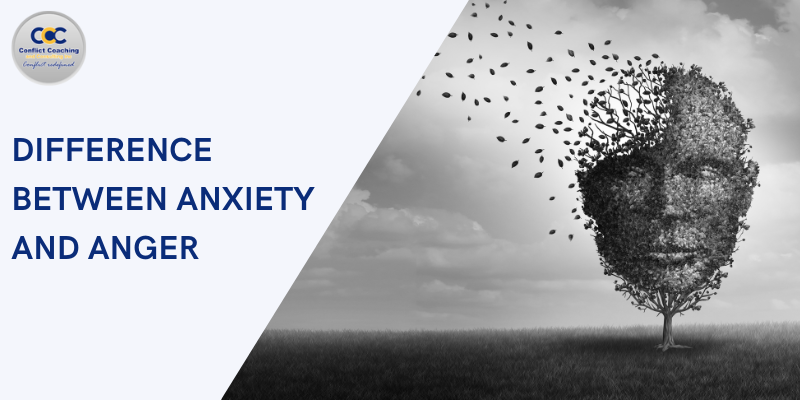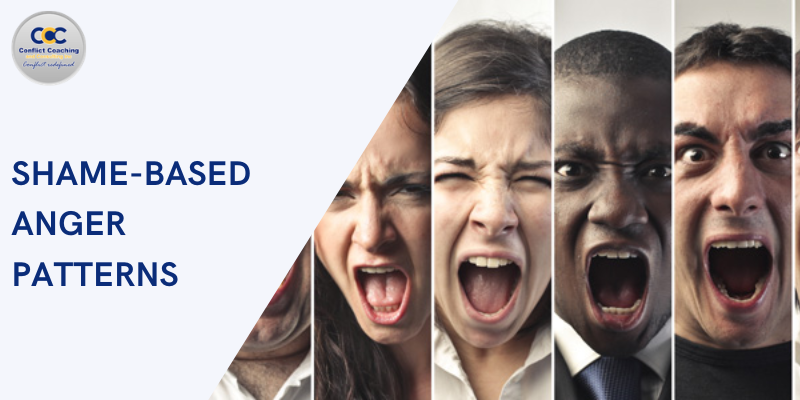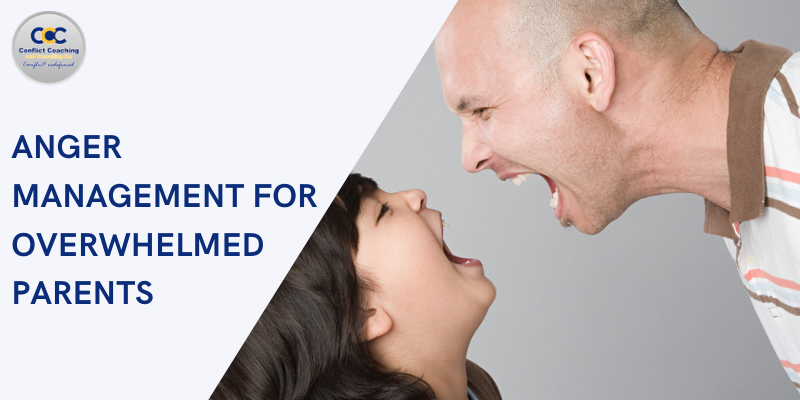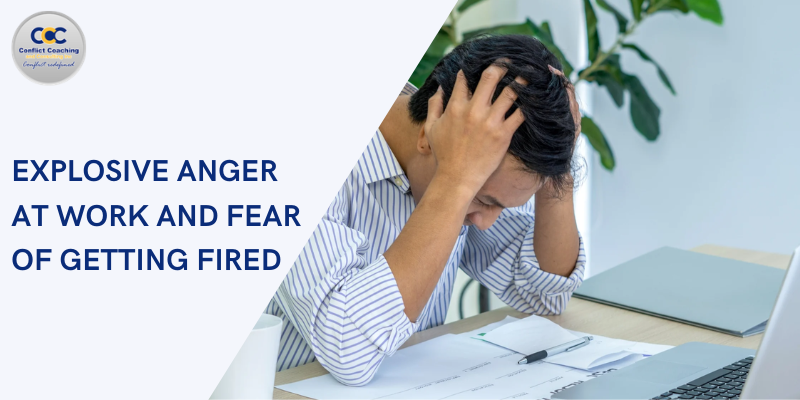
Anxiety and Anger: What’s the Difference?
Many people assume anger and anxiety to be the same, but they are not. Their symptoms and treatment might resemble, but these emotions are entirely different.
Anxiety is the tension or fear you have in reaction to a possible threat. Anger is a dangerous reaction, but an intense sensation of aggravation accompanies it.
Researchers believe that these two emotions play a crucial role in our capacity to detect and respond to danger.
Though anger and anxiety are two different feelings, they, like all emotions, teach us about ourselves if we take the time to listen to them. And while they are unique, they can interact in several ways that might aggravate anxiety, anger, or both.
This blog will help you understand the difference between anxiety and anger. So, let’s get started!
What is Anxiety?
Anxiety is closely connected to extreme worry and terror in response to common causes. In addition, many people with anxiety disorders are prone to anger, yet, the connection between anger and anxiety is frequently neglected or disregarded.
Anxiety is frequently associated with overstimulation as a result of a stressful situation or threat and perceived helplessness to deal with that threat.
What is Anger?
Anger is commonly associated with frustration. When worry goes unnoticed and unspoken, it may develop into irritation, which can turn into anger.
When worry or stress becomes anger, the person expressing anger has an underlying fear regarding something in their life. When people are terrified or concerned about something, they usually select anger unintentionally.
How Anxiety and Anger Are Connected?
Anxiety and anger have a lot in common. By releasing potent hormones into your circulation, both emotions induce physical discomfort. Ordinary events can cause both. And your thought patterns can either improve or worsen.
Here is how anger and anxiety are connected to each other:
1. Anxiety Can Trigger Anger
Anxiety can cause people to become much more sensitive to minor issues and, consequently, more prone to anger. Hence, we can say anxiety can trigger anger.
Screaming and shouting at the dog for barking, being frustrated in traffic, or getting annoyed because of the long queue at the supermarket are all little triggers that may turn anxiety into anger.
However, anger doesn’t have to be purposeful. Among those with anxiety disorders, it is often a natural reaction to an unpleasant trigger or the impacts of long-term worry.
2. Similar Symptoms
When you are anxious or angry, your body produces chemicals such as adrenaline and cortisol that prepare you for a fight or flight response.
You are likely to encounter the following symptoms when you are anxious or angry:
- High heart rate
- Tightness in the chest
- Cramped or tight muscles
- Heat rushes gastrointestinal issues such as diarrhea
- Headaches
Under normal conditions, these symptoms will fade soon. However, suppose you have long-term troubles with anxiety or anger. In that case, the repeated release of these hormones may cause health concerns.
3. Similar Roots
Anxiety and anger are associated with a loss of control. Simply put, when you face a stressor you believe you are unprepared to handle, you may become apprehensive.
Anxiety may rapidly turn to anger if you feel more threatened.
In both cases, external stimulation undermines your sense of security and power over your surroundings. Anger might just be a more chemically powered kind of anxiety.
Anger is the basis of anxiety: individuals who haven’t learned how to vent their anger constructively may have prolonged periods of worry. There are several causes of anger, including stress and emotional distress, but anxiety remains the primary cause of anger.
Is Anger a Symptom of Several Other Conditions Too?
Anger itself is not a disorder. It is a normal and beneficial emotion if controlled. However, uncontrolled anger is something to worry about. Normal anger comes at the time and fades away. The situation becomes alarming when you experience prolonged episodes of anger. It can be a symptom of several health conditions like:
Depression
Depression is frequently accompanied by anger. Depressed males, in particular, are more prone to violent anger outbursts. It is commonly defined as “anger turned inward,” yet it may also be turned outward. Medication and counseling can help with this mood condition.
Autism
Anger is common among persons on the autistic spectrum. However, the anger might appear out of nowhere and go away swiftly. Sensory overload, stress, being neglected, and a changed routine are all triggers.
An individual with an autism spectrum condition may struggle to communicate, making things much more difficult. They might not be aware that they are behaving out of anger. One aspect of the solution is for people to become more conscious of themselves and their surroundings.
Dementia
People are likely to be frustrated with various forms of dementia (such as Alzheimer’s). Dealing with unexpected anxiety and anger outbursts may be very stressful for the caregiver. Caregivers must take a moment to pause and find the immediate cause, whether it’s bodily suffering or difficulty communicating.
Diabetes
Diabetic people are more prone to experience various emotions, such as anger. People may dislike having to modify their way of life. They may also be concerned about the impact on their future. Diabetes is associated with low blood sugar levels and going off the handle. This is because the hormones used to manage glucose levels are the same hormones to regulate stress.
Common Treatment for Anger and Anxiety
Following are some standard treatments by which you can control your anger and anxiety:
Cognitive Behavioral Therapy: The most effective treatment for anger and anxiety problems is cognitive behavioral therapy (CBT), which is often a short-term treatment and focuses on teaching you particular strategies to help you alleviate your symptoms and eventually return to the things you’ve avoided due to anger and anxiety.
Medication: Your doctor may recommend drugs such as buspirone, benzodiazepines (sedatives), or beta blockers. These drugs are meant for short-term treatment of anger and anxiety symptoms and should not be used continuously.
Counseling: Talking to a psychologist and counseling sessions can help treat anger and anxiety. You can either take a physical session or get yourself enrolled in online sessions. It allows you to learn various anger management techniques.
5 Ways to Manage Anxiety and Anger
- Do Physical Exercises
- Mindfulness Meditation
- Take Anger Management Course
- Go for Massage
- Start Journaling
Many of the techniques and practices that help to reduce anxiety also work to reduce anger. Here are some of them for your consideration.
1. Do Physical Exercises
Practice exercise if you want to feel less anxious and angry right away. People who engage in regular physical exercise have fewer anxiety and anger symptoms than those who do not.
2. Mindfulness Meditation
Every morning and evening, spend 15-30 minutes meditating. It’s recommended to meditate before eating. Try to meditate in a peaceful spot, although it’s acceptable if you don’t have one. Noise does not impede meditation.
For about a minute, close your eyes, sit quietly, and do nothing. Thoughts will arise, and that is fine. It is normal to experience ideas when meditating. After a minute or two, softly begin chanting your mantra in the natural way that thoughts arise without moving your lips or tongue.
Repeat your chant slowly until you have finished meditating. When thoughts arise, return to your mantra softly. Lay down and relax for 4-5 minutes once you finish meditating.
3. Take Anger Management Course
Various anxiety and anger management classes are available on the internet that can help you control your anger symptoms. Even if you cannot visit a healthcare facility, you can enroll in these courses to improve your mental health.
4. Go for Massage
Many people find moderate massage treatment to be a calming experience. It has also been shown to be beneficial for reducing anger and anxiety. Massage therapy reduces symptoms of all mood disorders, particularly anxiety and anger.
5. Start Journaling
When you’re concerned about a situation, maintaining a journal might help you figure out what’s generating the anger or anxiety. Once you’ve recognized the triggers, you may devise a strategy to address the issues and lessen your anxiety and anger.
Conclusion
We hope you now understand the difference between anxiety and anger and that this information was helpful to you. Anxiety and anger are strongly intertwined. They help us survive risky situations since they are typical responses to perceived threats.
These two emotions cause identical hormonal changes in the body, as well as psychological factors.
Mastering Anger offers online anger management classes that can be completed in 4-hour, 6-hour, 12-hour, or you can opt for a comprehensive one that can be completed in 52 hours.
Suppose you experience anxiety and anger too frequently or too intensely. In that case, we strongly advise you to get professional medical help since it can negatively impact your mental and physical health and cause issues in your relationships.





Responses